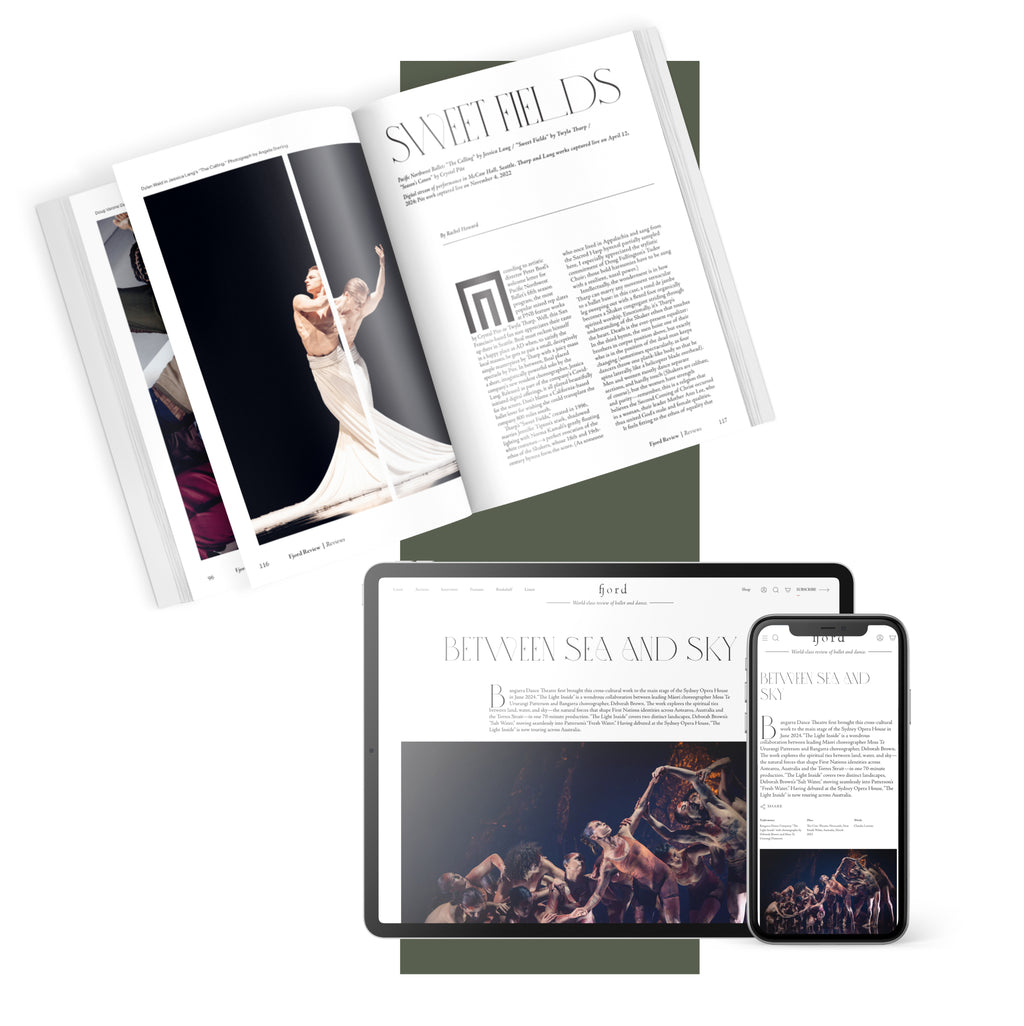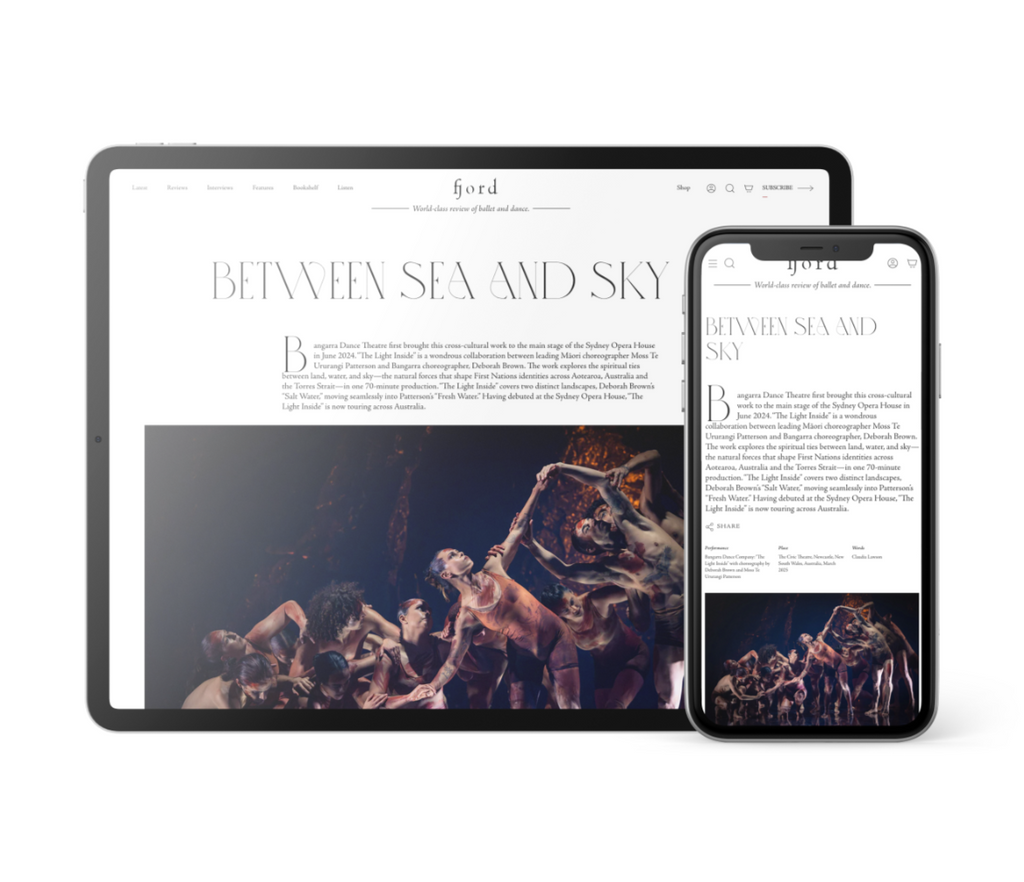A more ethereal piece than the last work I saw from Curious Seed, “Teenage Trilogy,” it's at once personal and inventive, finding Devaney in reflective mode, drawing from lived experience and imagination—there's an invented character, Birdie, an eccentric neighbour who feeds the birds that gather at her window every day. (Birdie, although fictional, represents humanity at its best, albeit as a whimsical kind of totem). This is a jumping-off point to consider our daily interactions. The rest is Devaney asking questions about the reliability of memories, entwined with what our bodies go through in real time.
On a dreamlike set, designed by Yvonne Buskie, fragments of paper positioned high above her are shaped into an arch for this outdoor setting, evocative of, variously, wings, clouds, a jagged cityline, or a Rorschach psychology test design, which makes sense, given that this is both a framing of Devaney's life, and a wider meditation into impermanence, love, family, climate change, and that which will outlast us all.











comments